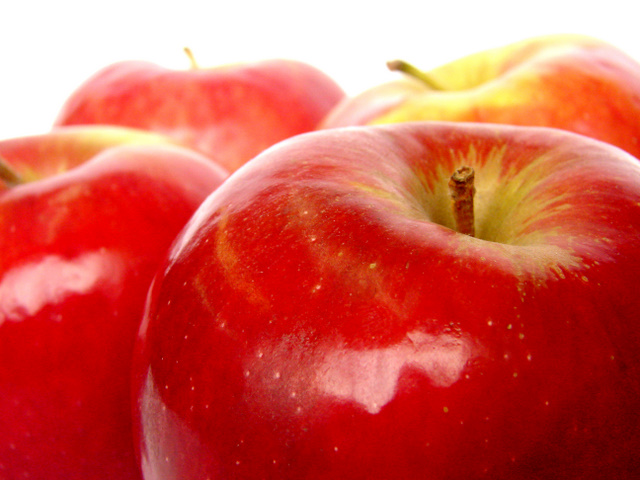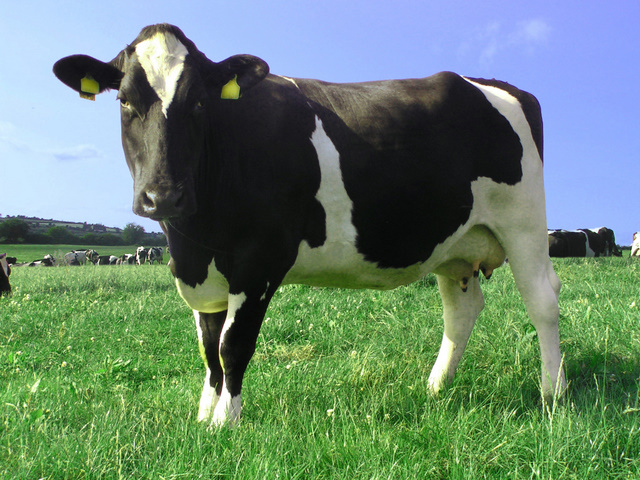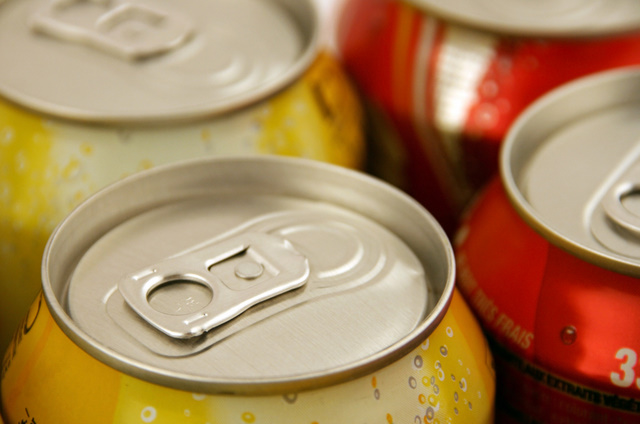Could the fruits and vegetables we are eating to be healthier actually be harming us instead? According to the Environmental Working Group, conventional produce is often contaminated with one or more pesticides, pesticides that are now being linked to health issues in pregnant women and children. So should we give up on eating our daily intake of fruits and veggies?
This is the sixth in a monthly series on making small, incremental changes towards a healthier diet prompted by my lunch with Robyn O’Brien, author of The Unhealthy Truth. Just joining us this month and interested in completing the previous monthly challenges? Check out all posts from the series here.
If you are a parent, no doubt you find yourself saying at least once a day, “You need to eat some fruit!” or “No dessert until you finish your peas!”. You may even be trying to sneak in those veggies by blending them in a smoothie or putting purees into sauces, pancakes and muffins.
We all know fruits and vegetables are an important part of a healthy diet and should make up about half of our dinner plate and, as parents, we try every which way to get ’em down.
But when we pile on those peas or crunch on a juicy apple, we aren’t asking for a little pesticide with that.
However, according to tests run by the Environmental Working Group, 10% of the produce they sampled had five or more different pesticide residues and at least one pesticide was found on 63% of the produce they tested.
So why is this so important? What’s a little bug spray?
New research data has emerged over the past few months from three separate studies indicating what many had already suspected – children whose mothers were exposed to higher levels of pesticides during pregnancy had lower IQ scores.
So should we just say no to apples? Out with tomatoes? Nix the peas?
I think I just heard the joyful cheers of children everywhere.
No! We don’t need to give up on produce. (Sorry kids.) We just need to take small, incremental steps to reduce our exposure to pesticides that work within our budget.
Certain fruits and vegetables are considered more contaminated than others and have been coined “The Dirty Dozen”. These fruits and vegetables are either sprayed more often or with more contaminants and/or absorb the toxins more easily. The Environmental Working Group publishes a extremely helpful shopper’s guide that you can print out and take with you to the supermarket to help educate you on which produce you should buying organically. They even have a handy smartphone app. Yup, there’s an app for that!
So which are the fruits and vegetables you should try to buy organic?
The Dirty Dozen
These items are listed in order of highest pesticide residue, so if you want to take small steps try substituting the first few items on the list with organic this month and tackling a few more the following month.
1. Apples
2. Celery
3. Strawberries
4. Peaches
5. Spinach
6. Imported Nectarines
7. Imported Grapes
8. Sweet Bell Peppers
9. Potatoes
10. Domestic Blueberries
11. Lettuce
12. Kale/Collard Greens
Check out CNN’s Dr. Sanjay Gupta as he tours the grocery store and talks about which fruits and vegetables to buy organic vs. others you can eat conventional.





Didn’t realize Kale was on the list…so glad we live in an area where we can easily get local fruits and veggies from farmers and have many stores available with organic options.
I try to shop organic for all fruits and vegetables but for the past few years it has been nearly impossible to find organic peaches near where I live. I still purchase from the farms with the lowest spraying.
Buying local is another great option. I love to stop by our local farmer markets and support the area farms. Thanks for the comment Jessica!
Its very hard to find organic grapes and nectaries
Agreed Gissel. Some times it can be hard to find certain fruits and vegetables that are organic. Something to consider would be to order them online and have them delivered to you. There is a service that covers the NJ, PA, and DE area that you might want to check out called Suburban Organics. I am sure there are similar services in other parts of the world as well.